One of the most popular topics of conversation in Russian society in recent weeks has been the situation in which one of the country’s chief institutions, the Russian Orthodox Church (ROC), finds itself. It all started on 21 February, when a girl band called Pussy Riot gave a provocative performance in one of the main Moscow cathedrals, Christ the Saviour. The show was described as a punk prayer service: the girls were brightly dressed with masks on their faces, and they sang an anti-Putin song to the Virgin Mary, the chief refrain of which was ‘Blessed Virgin, put Putin away!’
Three of the girls were detained and the rest are in hiding, some abroad. The charge against the arrested girls was disorderly conduct, which carries a possible sentence of 7 years in prison.
'After 70 years of communist rule in Russia, when religion was effectively banned, the collapse of the USSR enabled the Russian Orthodox Church to start regaining the position it had lost. Churches destroyed by the Bolsheviks were restored and new churches were built.'
The Pussy Riot protest has been discussed at the very highest level - President Medvedev, for example, commented on it in his valedictory interview – but the main issue it has brought up is the role of the ROC in today’s Russia and how the future may unfold for the Russian state.
The Church and society
After 70 years of communist rule in Russia, when religion was effectively prohibited, the collapse of the USSR enabled the Church to start regaining the position it had lost. Churches destroyed by the Bolsheviks were restored and new churches were built. The Church ceased to be an underground institution and, although the new 1993 Constitution made it quite clear that Russia was to be considered a secular state, the way events developed gave ample grounds for doubt. On the main Christian feast days, for instance, Russian TV channels regularly carry live broadcasts of church services attended by leading politicians. The politicians themselves like to point out that they are church-goers, but rarely remember that the Russian state is both multinational and multifaith. Orthodoxy is the de facto state religion, though this appears in no state documents.
Having regained its position in society, the ROC started displaying an active interest in Russian public life and attempting to influence it. The first half of the '00s saw much-publicised attempts by Orthodox organisations, with the support of the Church, to bring criminal charges against the organisers of the art exhibitions 'Beware religion!' and 'Forbidden Art - 2006'. The basic theme of these exhibitions was the commercialisation of religion and the aggressive attitude of the ROC.
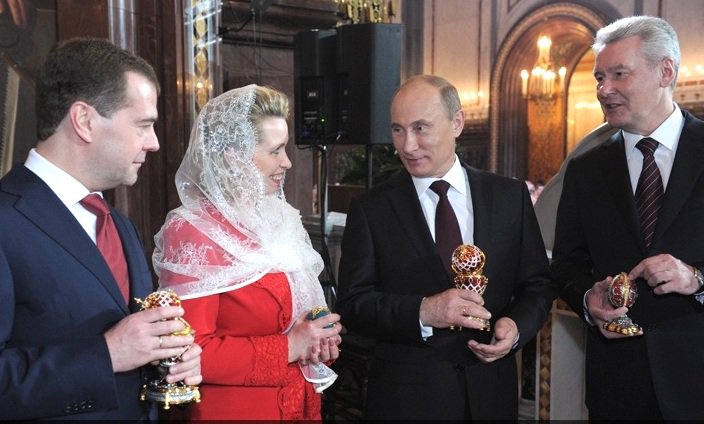
President Dmitry Medvedev with his wife Svetlana, Prime Minister Vladimir Putin and Moscow Mayor Sergei Sobyanin attend the Easter service at Moscow's Christ the Saviour Cathedral. Even though the country's constitution clearly describes Russia as a secular state, the country top leaders want to be seen by their fellow countrymen as faithful church-goers (photo: http://premier.gov.ru/eng/)
Human rights organisations were publicly criticised at church assemblies and the Patriarchate lobbied actively for the inclusion in the school curriculum of an 'Introduction to Orthodox culture.' As it happens, to no avail. With the arrival of the new Patriarch, Kirill, at the beginning of 2009, however, ROC attempts to influence various areas of Russian life intensified and the relationship with the government became even closer.
The Church made no real attempts to act as mediator in any serious disagreements. During last winter's political crisis, for instance, when tens of thousands came out on to the streets of Russia's cities to protest against the rigged election, the ROC preferred to remain on the sidelines. In 2009 the Georgian Patriarch, Ilia II, acted as mediator between Mikheil Sarkaashvili and his opponents, whereas in 2011 Patriarch Kirill demonstrated his unambiguous support for the Kremlin by saying that 'Orthodox people don't go to demonstrations.'
'During last winter's political crisis, for instance, when tens of thousands came out on to the streets of Russia's cities to protest against the rigged election, the ROC preferred to remain on the sidelines.'
During the presidential election campaign Vladimir Putin was the only candidate with whom Patriarch Kirill, with representatives of other faiths, had a meeting not long before the election. The Patriarchate later announced that none of the other candidates had expressed any desire for a meeting. This was somewhat disingenuous, because at the meeting Kirill described Putin as the 'most realistic candidate', thus making it abundantly clear where his sympathies lay.
Luxury and scandal
Parallel with its political bias, the lifestyle of some ROC representatives has given rise to a range of questions: their clarion call should surely be for modesty and simplicity, but the masses mainly associate them with luxury. The main cathedral, Christ the Saviour, is a special cause for discontent, particularly because the Church Assembly Hall is let out for corporate functions e.g. for the Vertu [luxury mobile phone] company, and the main complex houses a car wash.
These, and many other, grounds for complaints against the ROC could well have been no more than a topic for discussion on social networks and in kitchens, had there not been a powerful reason for it to acquire quite a different tonality. This was the Pussy Riot performance in the Cathedral of Christ the Saviour or, more precisely, the Church's reaction to it.
The ROC was unanimous in its condemnation of the show. There were no appeals for clemency, as might have been dictated by Christian precepts. One of the church leaders, Metropolitan Illarion, even wondered why the church should appeal for clemency for the girls, though reasons for doing so are to be found in the Gospel. When the former leader of Iraq, Saddam Hussein, was sentenced, the ROC spoke of the need for clemency. This time it was just the opposite, a cause of serious irritation for many Russians. The response was to organise a huge prayer service in front of the Cathedral on 22 April, which was attended by tens of thousands. Just a week before that Patriarch Kirill had spoken of anti-church and anti-Russian forces waging ideological war against the ROC.
ROC actions and reactions to events have only served to aggravate the situation. At the same time there were several scandals connected with the ROC erupting. A case being heard in one of the Moscow courts was brought by a relation of the Patriarch Kirill against her neighbour. She claimed that the dust from work being done in his apartment had caused 500,000 USD worth of damage to hers. This would probably have gone unnoticed, had the owner of the flat turned out to be not the relative, but Kirill, a monk, for whom it is unfitting to own any property.
Another scandal involved the Patriarch's Breguet watch, worth 30,000 USD, an unprecedented luxury entirely inappropriate for a priest, which became the subject of censure. The flames of criticism were fanned by his attempt to deny he owned it and his press department's inept retouching of the photograph to remove the offending watch. What ensued was very interesting: the Church's reaction to the criticism directed at it led to a change in people's attitude. During recent weeks the ROC has become an object of derision, which is exactly what has happened over the past 4 years to the institution of the presidency.
The presidency
Dmitry Medvedev's election as president in 2008 seriously damaged the credibility of the institution as such. His predecessor, Vladimir Putin, may have evoked a whole range of emotions, from adoration to fear and hatred, but Medvedev was regarded as an object of ridicule. This change happened as most people lost any real hopes for his presidency. Initially he was regarded as a symbol of some kind of political thaw; he promised liberalisation.
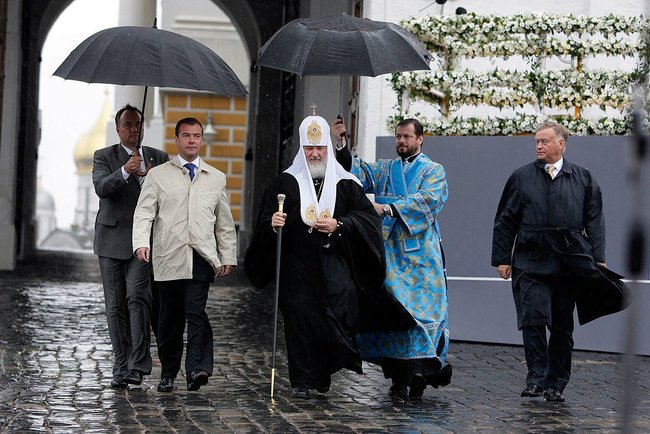
The outgoing president and Patriarch Kirill are both considered figures who have seriously damaged the credibility of their institutions (photo: http://eng.kremlin.ru/)
Neither the thaw nor the liberalisation ever materialised. At the same time the serious problems facing the state did not prevent Medvedev from paying a lot of attention to Apple gadgets or recording a video address on the subject of badminton. People started making fun of him and, when on 24 September 2011 he announced that he had decided to give up his place to Vladimir Putin, they ceased regarding him as anything but a figure of fun. The institution was totally demystified because it was not the country that elected the president, but two old friends deciding between themselves who should be the next head of state.
Attempts by journalists and other people to get concrete answers to their questions concerning the serious challenges facing the country remained unanswered, or the answers simply provoked laughter. Not one of the tasks Medvedev had set himself 4 years previously had been achieved. In his valedictory interview a week before the inauguaration of the new head of state, President Medvedev repeated several times 'I am the president.' The internet – the least censured part of the media and society – wondered whether he was really sure of that.
What now?
The situation in the ROC is not a private matter and not just an internal matter for one of the government institutions. It is without a doubt a demonstration of how, one after the other, these state institutions – and the ROC is in effect one of them - are losing the trust of the Russian people. The winter of protest, when tens of thousands came out on to the streets, showed that people do not believe in elections, the parliamentary system or the presidency. The spring of derision, directed at the Church, has added one more institution to that list. It is another blow aimed at the institution of the Russian state — and this will continue unless the system begins to react to the questions and demands of society. In this situation there is only one possible way for events to develop and it is in evidence already: society and the state will continue to exist independently of one another, growing further and further apart. This process may seem inevitable today, but its results are unpredictable. It is, after all, not simply a question of damage to the image of government, but a crisis for the very institution of the Russian state.
Read more
Get our weekly email
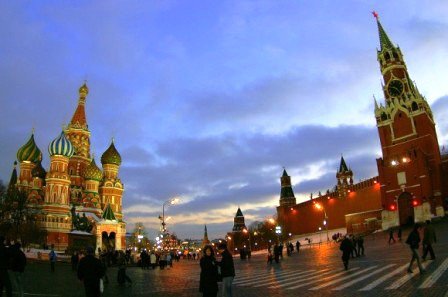
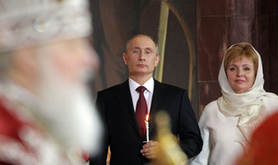
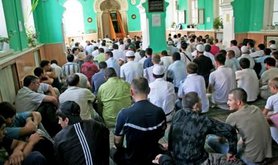
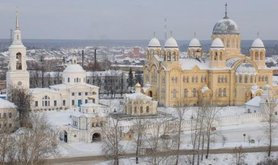
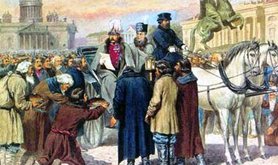



Comments
We encourage anyone to comment, please consult the oD commenting guidelines if you have any questions.